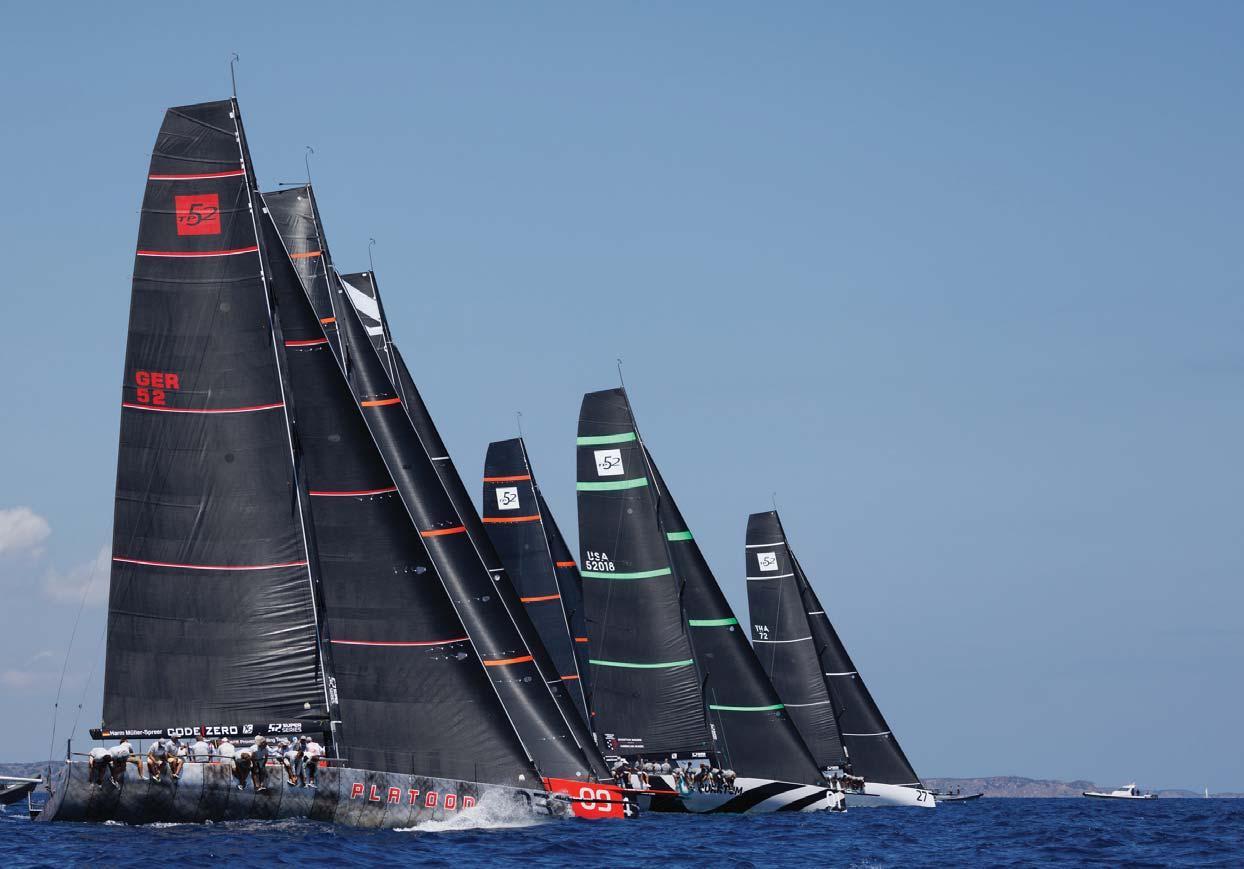
3 minute read
SUSTAINABILITY AND GLAMOUR
The 52 Super Series – What is it?
It is renowned as the world’s leading grand prix monohull racing circuit. Each yacht is based around a carbon-fibre hull and costs north of 2.5 million euros. In a similar way to Formula 1 cars, the yachts must comply with a strict set of regulations such as sail area, hull length – not surprisingly, set to 52 feet – weight etc. This still gives the teams scope for fine-tuning, where even small incremental changes can give a winning advantage. Each of the 5 regattas has around 10 races and the ‘first past the post’ is the winner. As the regulations are so tightly enforced, the boats are sufficiently evenly matched in design that there is no handicap system in place. Primarily, of course, they were here to race and have fun…
The port of Mahon was buzzing from the 4th to the 9th of July, with the arrival of the 52 Super Series racing teams, along with the support crews and owners, for their third time racing in Menorca. It was their third regatta of 2023, having previously raced in both Saint-Tropez and Scarlino, Italy.
There is no monetary prize for the owners, simply the kudos that comes from winning but that doesn’t make the races any less competitive! For this visit, 9 teams competed over 5 days of hard-fought, exciting racing, paring down weight, wherever possible, in order to get the maximum speed. The overall winning team for the week was the German team, ‘Platoon’.
By Chris Carrington
In addition to the teams, there is a stack of other people involved with the regatta, to ensure that everything runs smoothly and that fans can track the activity in real time. In fact, almost 400 people were involved. This represents a lot of money being brought into the island, with the large number of hotel rooms and restaurant bookings.
The Sustainability Angle
I was fortunate to grab some time with the Marketing and Sustainability Director, Lars Böcking, to find out the latest environmental initiatives being promoted by the Series. He told me how they continue use the BlueWater water filtration system, which could be seen at the end of the pontoon. This was available to all the teams and to any members of the public who wanted to fill their water containers. The estimate is that the use of this system, may prevent the use of up to 30,000 single-use plastic bottles, each year.
The Series has a policy of engaging with Non-Governmental Organisations (NGOs) at each of their racing venues. Working with the NGOs, they jointly decide the most efficient way to make the best use of their limited time, in order to make a positive impact.
Lars informed me that they had worked with environmental groups in Menorca and were trying to arrange for about 100 schoolchildren to participate in a beach clean-up.
In conjunction with local divers, a large amount of rubbish was also removed from the harbour. This was certainly less than in previous years, which is an indication of how effective previous clean-ups have been.
Anchors Away!
Each year, the Series has worked on reducing their carbon footprint and respecting the environment. One example of this is their use of ‘Robot Race Marks’, in place of the traditional marker buoys, used in yacht racing.
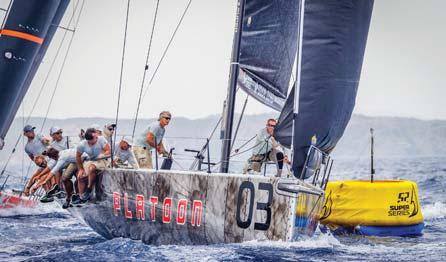
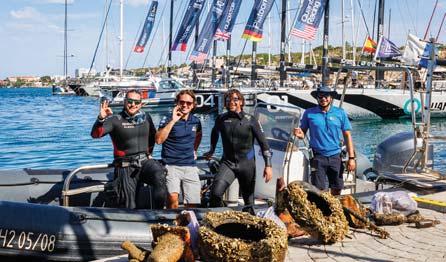
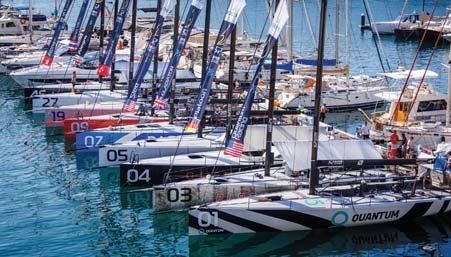
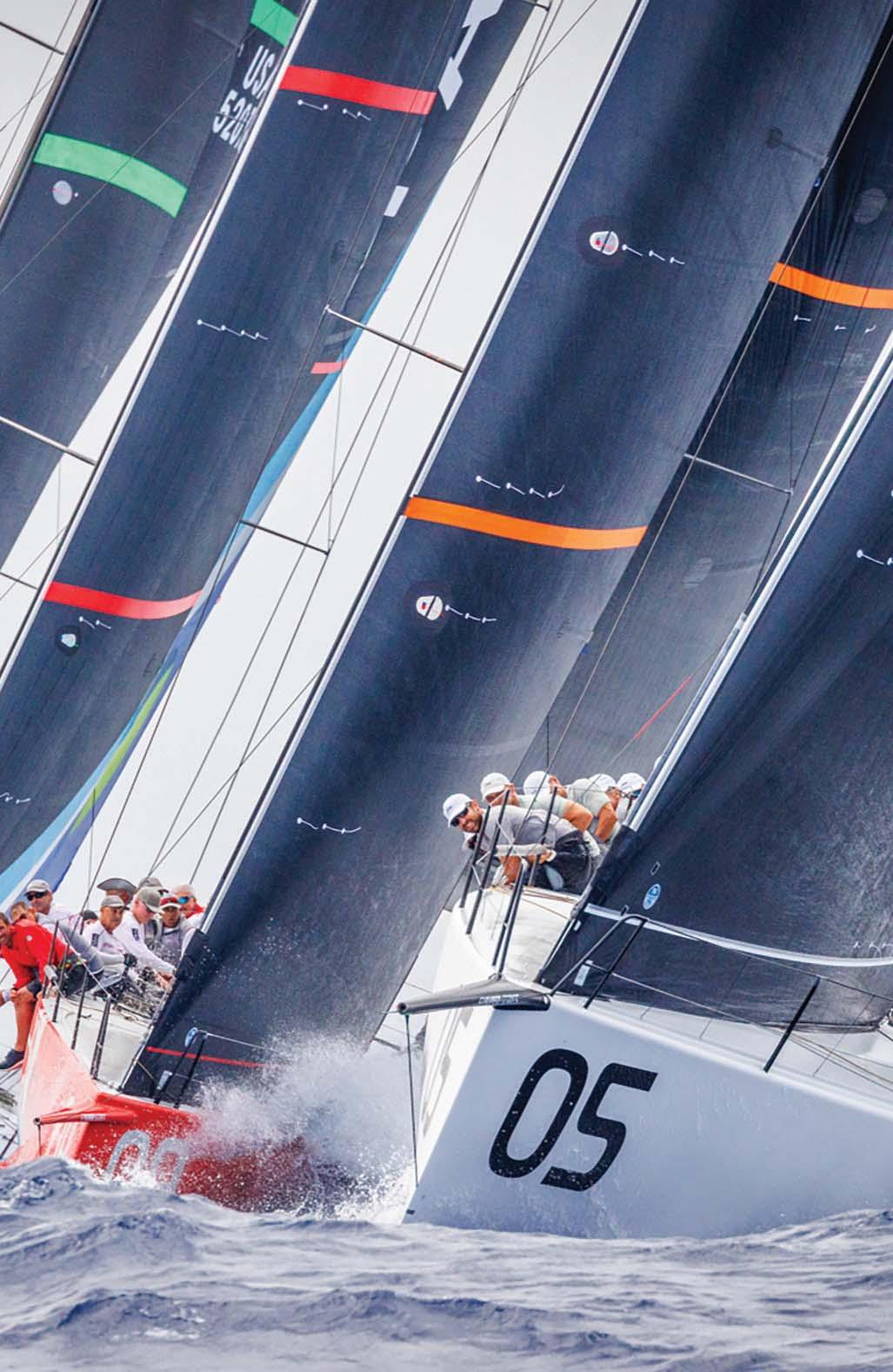
These are self-propelled buoys that are remotely controlled and can be sent to their course locations via a smart phone app. Simply set the course with the app, drop the buoys in the water and off they go on their own. They are also self-correcting, and using onboard GPS sensors, they can remain almost static, without the need for anchor chains. This means that there is no more damage to sea grasses, something of particular importance to Menorca, which has the largest Marine Biosphere Reserve in the Mediterranean. As well as being very ‘cool’, this system also reduces the amount of fuel used by the support boats, as there is no longer a need to transport the usual heavy anchors and chains, or to drive around the course to make changes to the layout.
Food For Thought
An additional area of waste reduction is with the food provided to the Series participants. Firstly, the teams are encouraged to buy only locally-sourced products, with a minimum of single-use containers. Inevitably, there is still food remaining at the end of the day and the Series distribute this to local people in need. For the Menorca regatta, the leftover food was provided to the Red Cross.
And That’s it for This Time
And that’s it for this Menorca visit. The yachts have been loaded up into their steel cradles on a freight ship and taken to Barcelona, where it all kicks off again on 21st August. Life is a little quieter in the port, since the departure of the teams but hopefully, there is at least a little of their legacy remaining. Small changes can be the building blocks for something much bigger!










